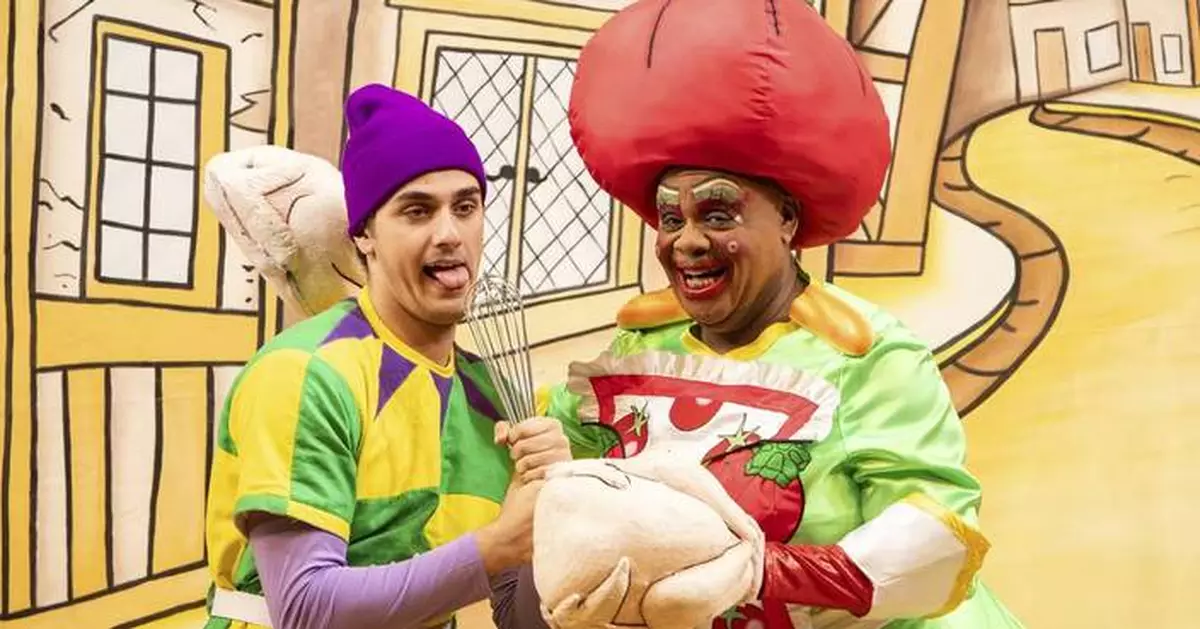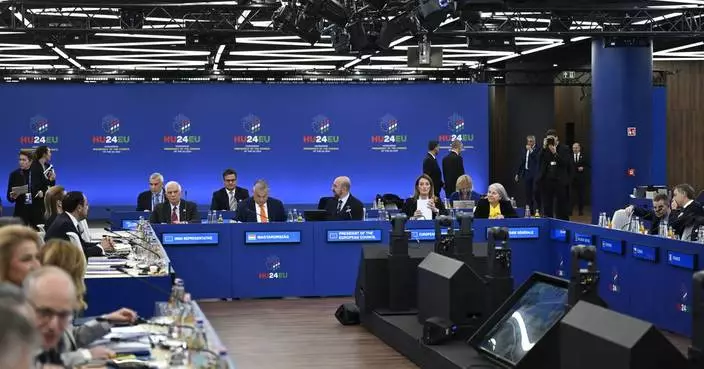LONDON (AP) — Here’s a recipe as essential to Christmas in Britain as turkey, tinsel and mince pies.
Mix a fairy-tale plot with topical references, slapstick, song, dance and double entendres. Drench in sequins and spangles, mix vigorously, add some noisy audience participation, and you have a panto.
Click to Gallery
Kandaka Moore as Dick Whittington poses during a photocall for Hackney Empire's 25th pantomime in London, Tuesday, Dec. 3, 2024. (AP Photo/Thomas Krych)
Beth Sindy as Fairy Bowbells and Kat B as Thomas the Cat, appear on stage during a photocall for Hackney Empire's Dick Whittington and His Cat in London, Tuesday, Dec. 3, 2024. (AP Photo/Thomas Krych)
Graham MacDuff as King Rat strikes a pose on stage during a photocall for Hackney Empire's Dick Whittington and His Cat in London, Tuesday, Dec. 3, 2024. (AP Photo/Thomas Krych)
Kat B as Thomas the Cat and Kandaka Moore as Dick Whittington perform during a photocall for Hackney Empire's 25th pantomime in London, Tuesday, Dec. 3, 2024. (AP Photo/Thomas Krych)
Kat B as Thomas the Cat performs during a photocall for Hackney Empire's 25th pantomime in London, Tuesday, Dec. 3, 2024. (AP Photo/Thomas Krych)
Clive Rowe as Dame Sarah the Cook poses on stage during a photocall for Hackney Empire's 25th pantomime, Dick Whittington and His Cat, in London, Tuesday, Dec. 3, 2024. (AP Photo/Thomas Krych)
Olivier Award-winner Clive Rowe (right) performs as Dame Sarah the Cook during a photocall for Hackney Empire's Dick Whittington and His Cat in London, Tuesday, Dec. 3, 2024. (AP Photo/Thomas Krych)
Olivier Award-winner Clive Rowe (right) performs as Dame Sarah the Cook during a photocall for Hackney Empire's Dick Whittington and His Cat in London, Tuesday, Dec. 3, 2024. (AP Photo/Thomas Krych)
Pantos — short for pantomimes — are stage musicals that play at theaters big and small across the U.K. each winter. Formulaic but anarchic, family friendly but a little risque, they are a holiday tradition that give many children their first exposure to live theater — and adults a chance to cut loose.
Anyone who thinks Britons are buttoned up hasn't been to a panto. Audiences happily shed their inhibitions – cheering, singing, hissing the villain, shouting “He’s behind you!” to warn the hero.
“It’s singing, dancing, laughing — taking the family out and being able to be out with their kids and letting the kids run riot,” said Clive Rowe, who directed and stars in “Dick Whittington and his Cat” at the Hackney Empire — his 17th annual panto for the storied east London theater.
Pantomime has deep roots, stretching back to the stock characters and bawdy humor of the 16th-century Italian commedia dell’arte and the French harlequinade, as well as the English music hall. By the late 19th century, the elements had gelled into a form still recognizable today.
The plots are drawn from well-known fairy tales and children’s stories such as “Aladdin,” “Snow White” and “Cinderella.” Characters include a plucky hero, or “principal boy,” often played by a woman, an outrageous villain, and a “dame,” a sharp-tongued matron who is always played by a man in fabulously flamboyant drag.
“The pantomime dame is the beating heart of the show,” said Simon Sladen, curator of theater and performance at London’s Victoria and Albert Museum. “She is that engine that drives it. Firstly with pace and anarchy, but also a little bit of sauce on the side.”
An estimated 3 million people in Britain attend a pantomime each year, in venues ranging from small regional theaters to London West End playhouses. Many theaters rely on them for a big chunk of their annual income.
When London’s theaters were closed for months by pandemic lockdowns in 2020, panto dames led a protest march through the city to stress their importance to the creative economy.
They provide seasonal work to faded pop stars, television entertainers, the occasional Hollywood celebrity — Pamela Anderson took Liverpool by storm when she starred in “Aladdin” in 2010, singing “Santa Baby” while suspended on a swing above the stage, dressed in costumes by Vivienne Westwood.
They are also vital experience for many young actors, including the A-listers of tomorrow.
Jude Law told The Associated Press recently that he’d played Humpty Dumpty, recalling his performance as “loud and round.” At 17, Michael Fassbender played one of Cinderella’s Ugly Sisters, and a tree.
“Wicked” star Jonathan Bailey starred alongside a young Nicholas Hoult in a production of “Peter Pan.” Hoult also appeared in “Mother Goose” as a child, and says he would happily do another, as they’re “really fun.”
Asked to sum up the art form, Bailey called it a “quintessentially British bloody good time for all the family.”
Today’s pantos often strive to reflect diversity, both onstage and in the audience. Rowe, whose Hackney Empire pantos draw many of their cast and crew from Britain’s Black communities, said that at its core the genre is “about acceptance.”
“It’s about understanding, it’s about the idea that being different isn’t necessarily a bad thing,” he said. “It should be brought in and kind of celebrated and that no matter where you are in society, from the youngest to the oldest, we all have a place and we should embrace that.”
Drag performer Ginger Johnson, starring in an adult “all-drag panto” version of “Peter Pan” at London’s Phoenix Theatre, said that panto’s ability to change is “why it’s managed to survive for so long as a cultural form.”
“I think for a lot of kids, panto is the first time that they come in contact with drag as well,” Johnson said.
Stage historian Sladen said that some are leaning into the drag element of panto, with “a bigger, wider explosion of roles than just the dame and the principal boy being cross-dressed.”
“We might see the fairy godmother played by a dame or played by a drag artist. We might see a wicked stepmother, also played by a very well-known drag performer. So (it’s) constantly evolving, constantly changing with the times.”
Jill Lawless contributed to this report.
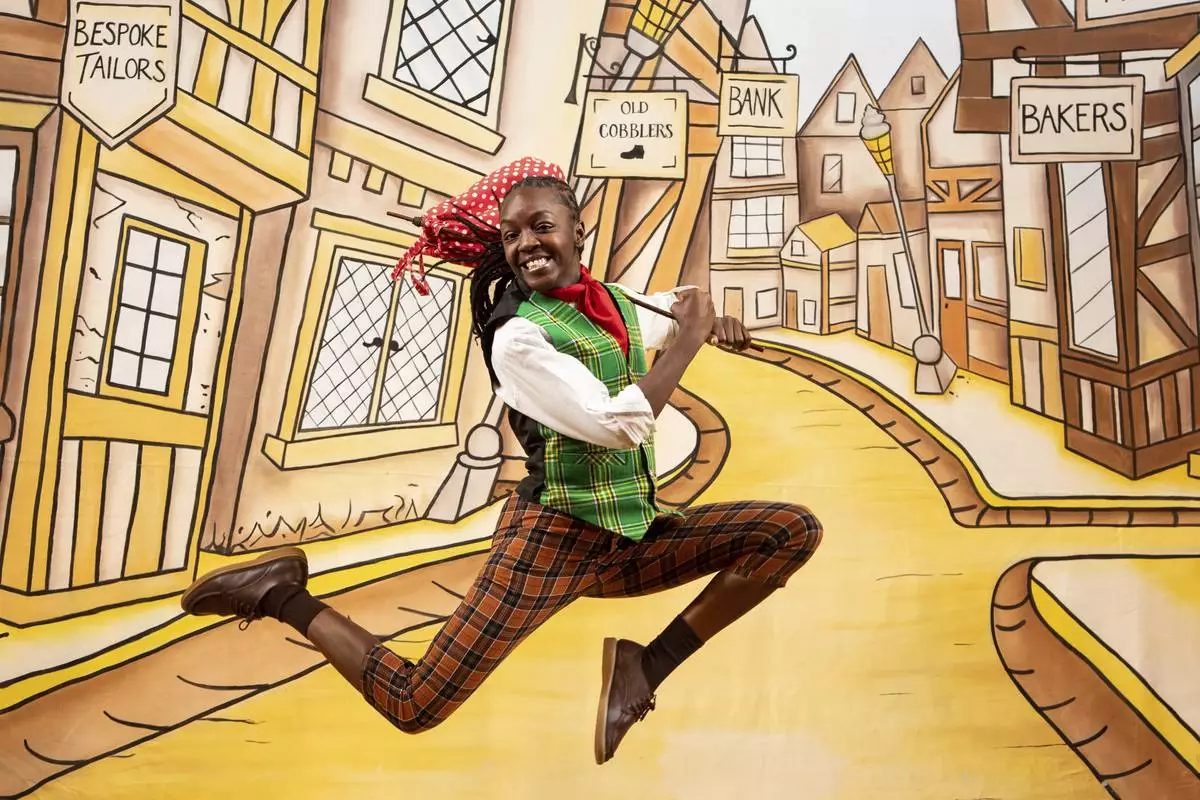
Kandaka Moore as Dick Whittington poses during a photocall for Hackney Empire's 25th pantomime in London, Tuesday, Dec. 3, 2024. (AP Photo/Thomas Krych)
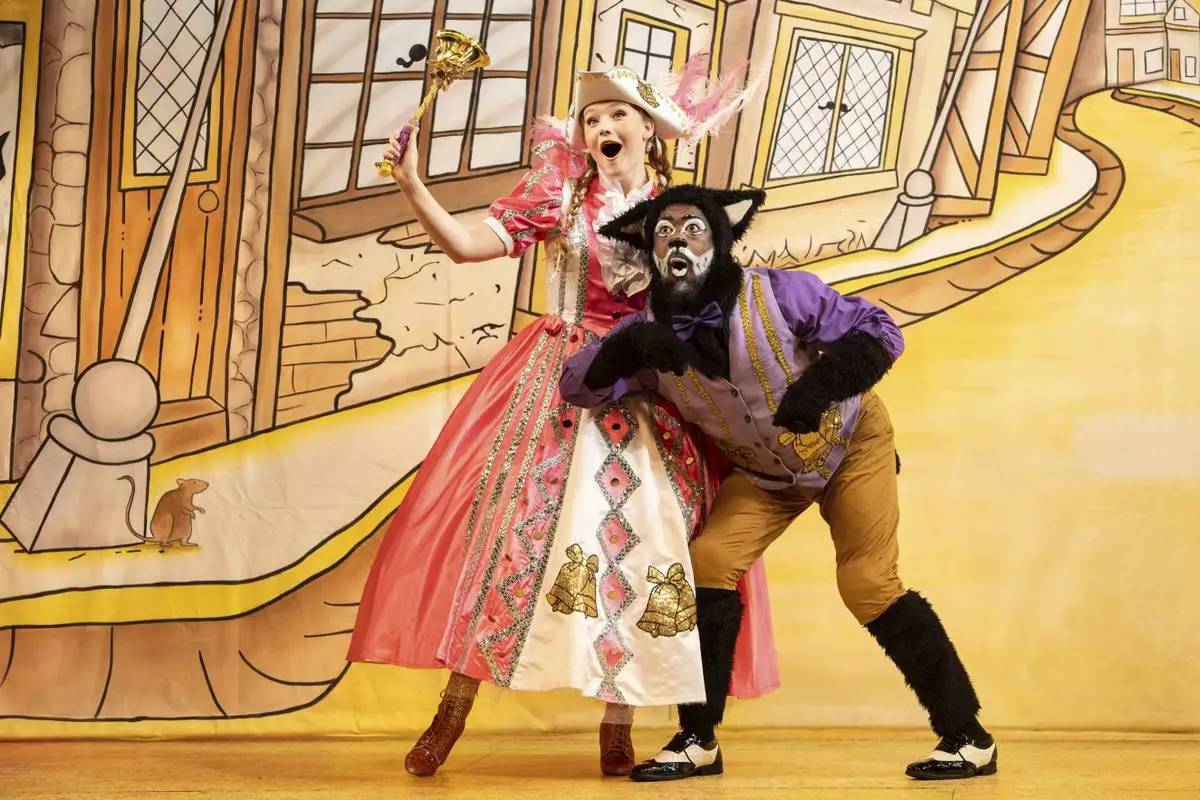
Beth Sindy as Fairy Bowbells and Kat B as Thomas the Cat, appear on stage during a photocall for Hackney Empire's Dick Whittington and His Cat in London, Tuesday, Dec. 3, 2024. (AP Photo/Thomas Krych)
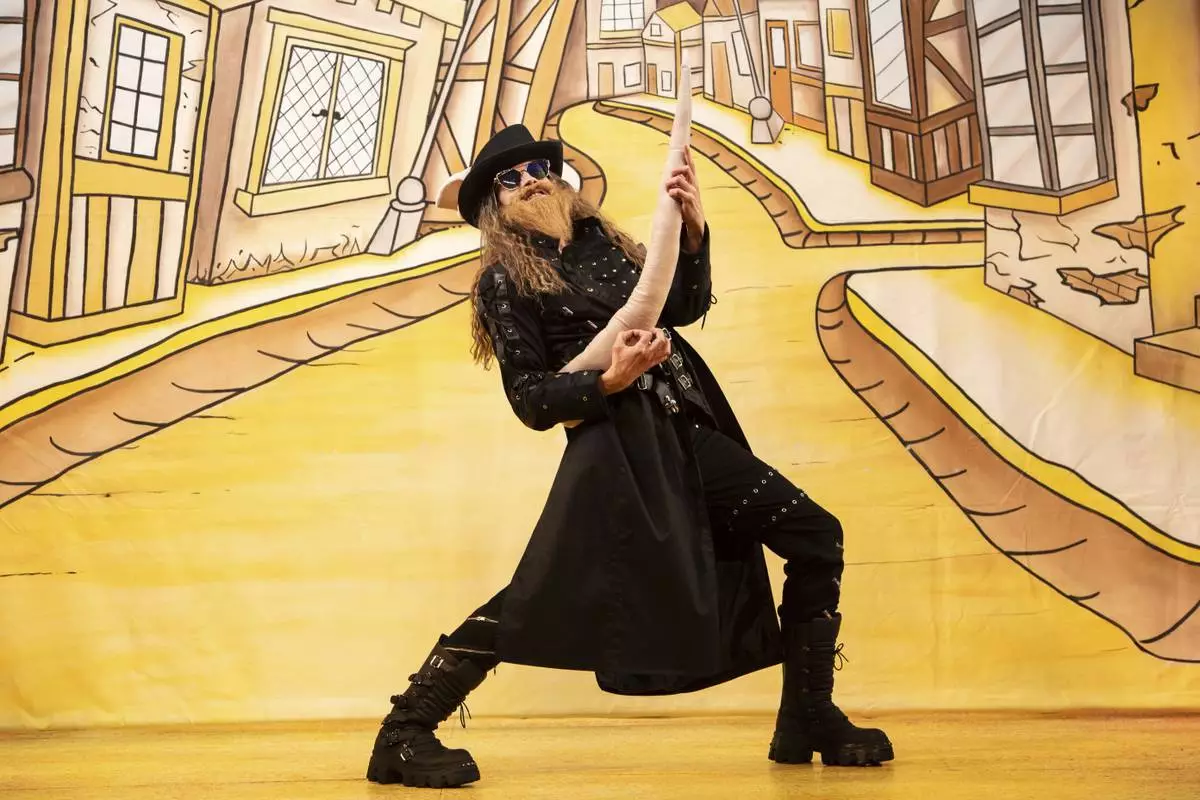
Graham MacDuff as King Rat strikes a pose on stage during a photocall for Hackney Empire's Dick Whittington and His Cat in London, Tuesday, Dec. 3, 2024. (AP Photo/Thomas Krych)
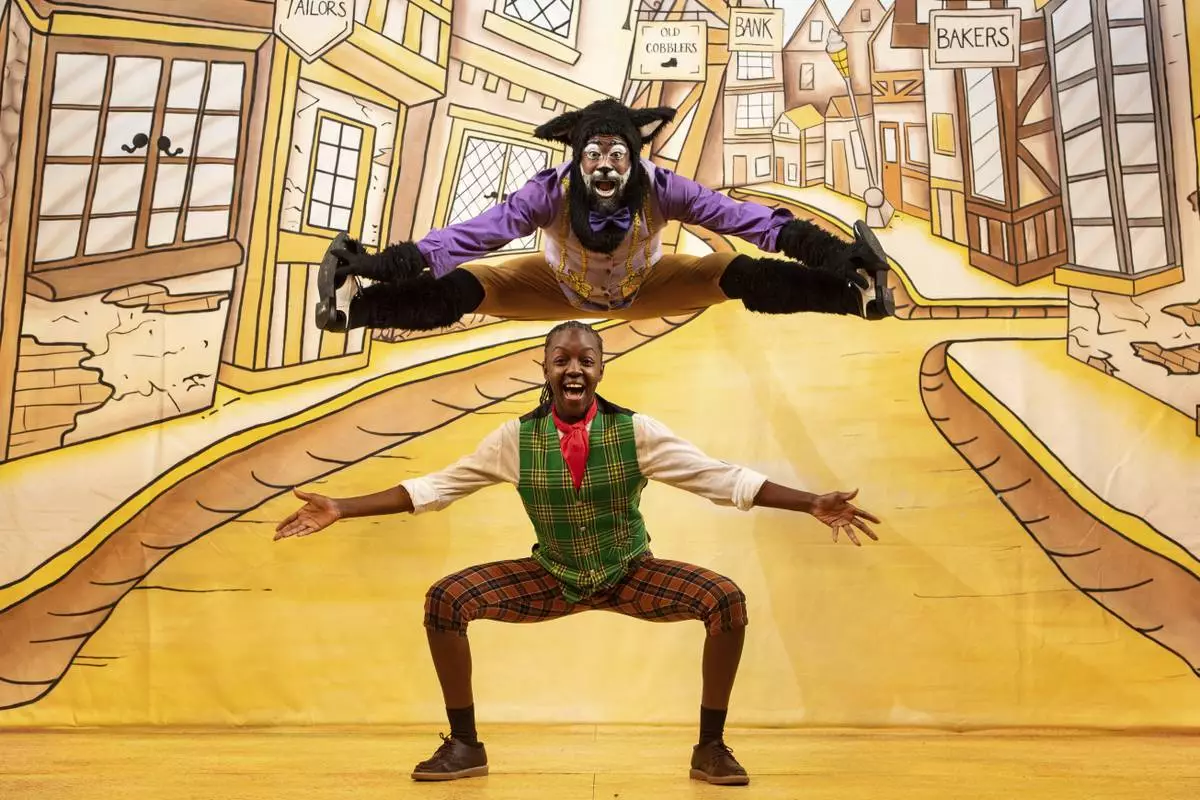
Kat B as Thomas the Cat and Kandaka Moore as Dick Whittington perform during a photocall for Hackney Empire's 25th pantomime in London, Tuesday, Dec. 3, 2024. (AP Photo/Thomas Krych)
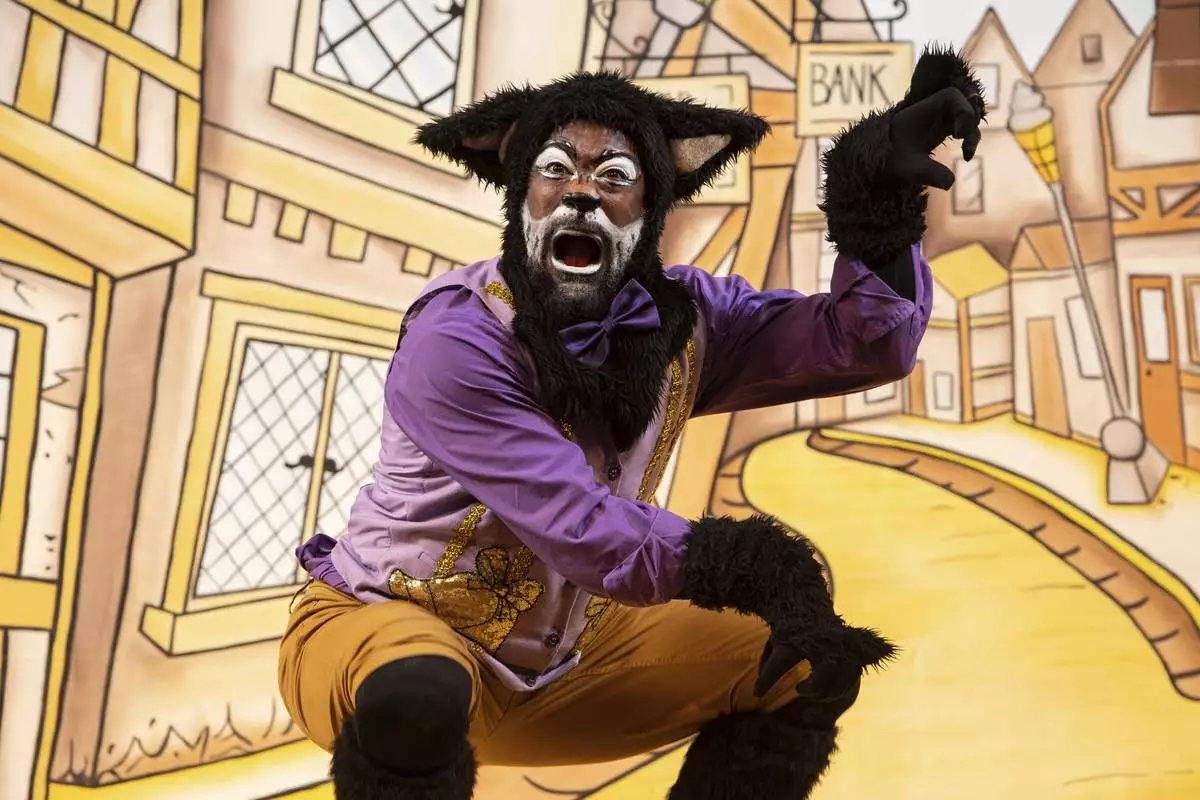
Kat B as Thomas the Cat performs during a photocall for Hackney Empire's 25th pantomime in London, Tuesday, Dec. 3, 2024. (AP Photo/Thomas Krych)
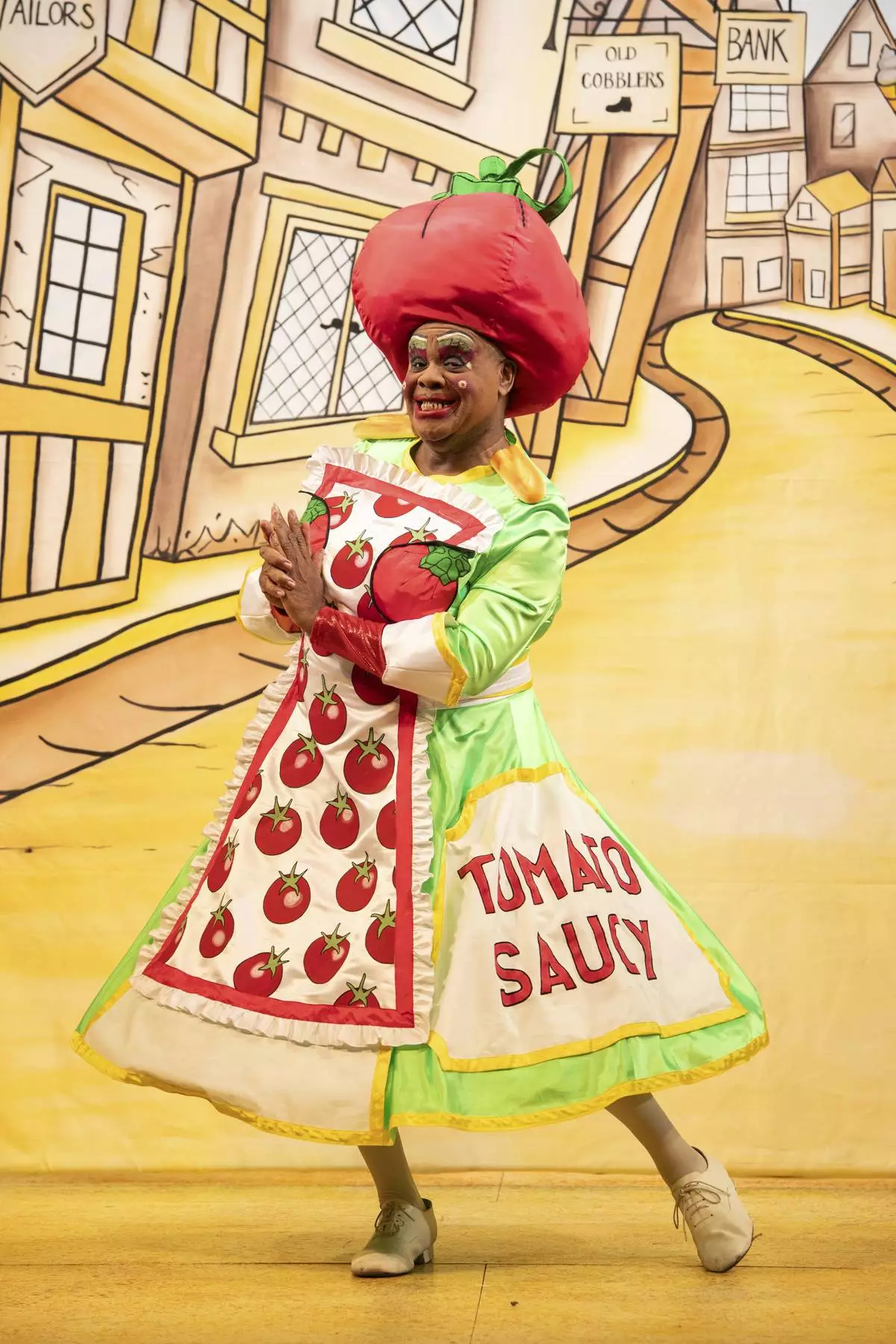
Clive Rowe as Dame Sarah the Cook poses on stage during a photocall for Hackney Empire's 25th pantomime, Dick Whittington and His Cat, in London, Tuesday, Dec. 3, 2024. (AP Photo/Thomas Krych)
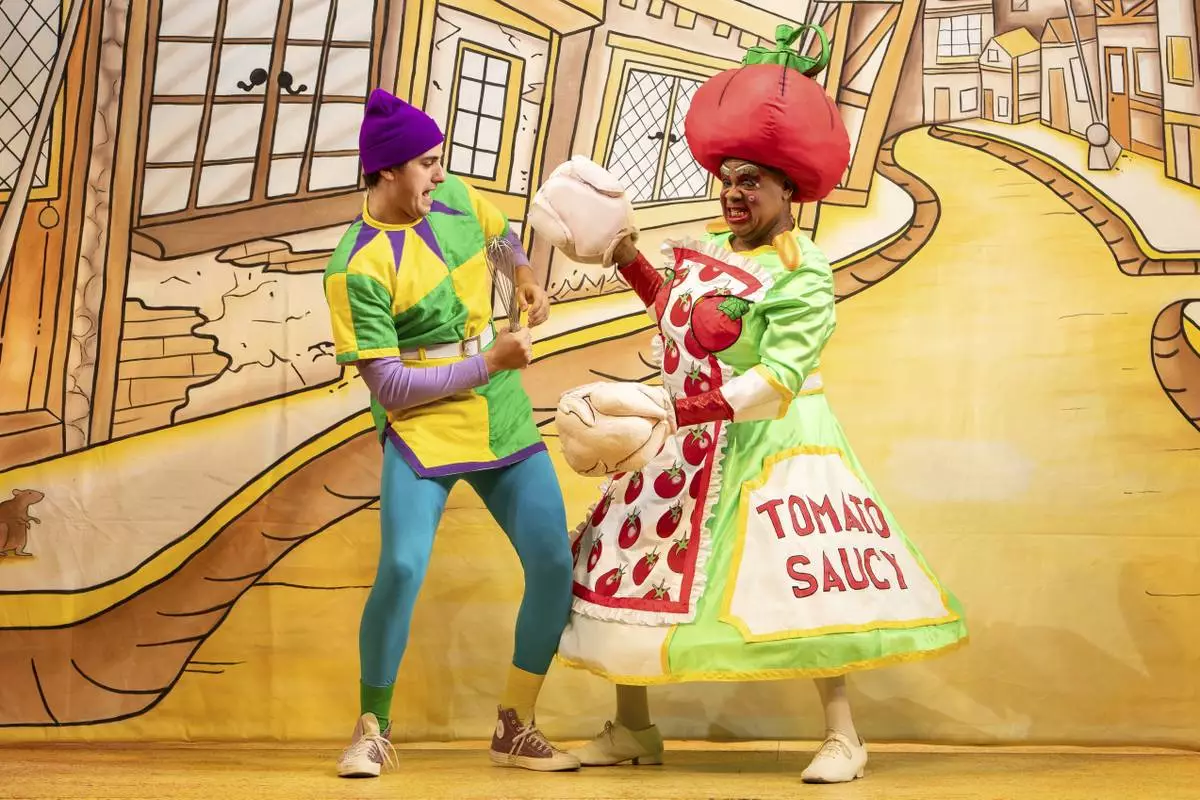
Olivier Award-winner Clive Rowe (right) performs as Dame Sarah the Cook during a photocall for Hackney Empire's Dick Whittington and His Cat in London, Tuesday, Dec. 3, 2024. (AP Photo/Thomas Krych)
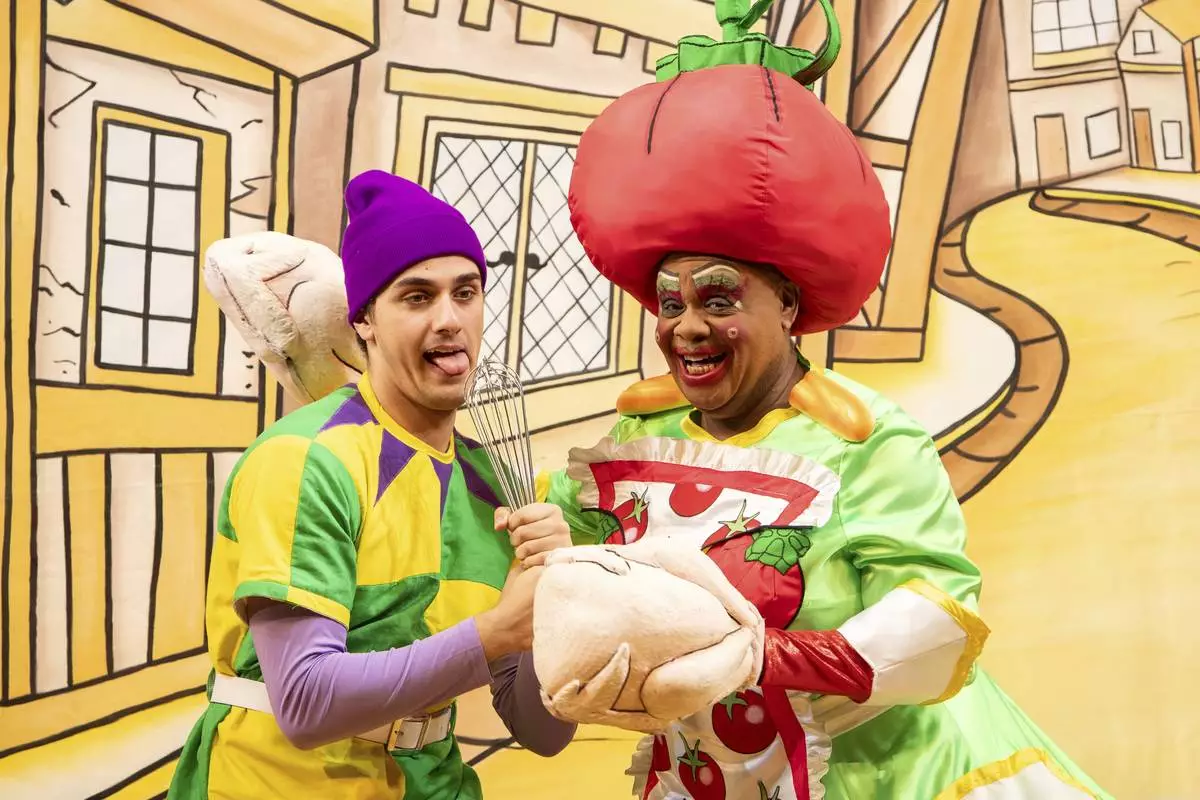
Olivier Award-winner Clive Rowe (right) performs as Dame Sarah the Cook during a photocall for Hackney Empire's Dick Whittington and His Cat in London, Tuesday, Dec. 3, 2024. (AP Photo/Thomas Krych)
PARIS (AP) — For powerful men in France’s film industry, this was a week of reckoning. Gérard Depardieu — the country’s most famous male actor — was convicted of sexual assault. Two days later, the Cannes Film Festival barred another actor accused of rape from walking the red carpet.
Together, the decisions sent a message that France had long resisted: that artistic brilliance may no longer shield those who abuse their power.
For decades, Depardieu was revered as French cinema’s “sacred monster” — a towering talent whose gluttony, volatility and magnetism became part of his myth. With more than 250 films to his name, many believed he would remain untouchable even after more than 20 women accused him of sexual misconduct.
Now, that myth has cracked.
The verdict has revived a broader question France has ducked since the dawn of the #MeToo movement: Can a country that celebrates seduction and irreverence finally hold its male icons to account?
France has long lived its own #MeToo contradiction. That talent, charm, or intellect forgives misconduct. That the art excuses the artist. This is the land that gave the world Brigitte Bardot’s pout and Catherine Deneuve’s poise — and then watched both recoil when the movement came knocking. Deneuve has defended “the right" to seduce, while Bardot has dismissed feminism outright: “I like men.”
But the ground is shifting.
Depardieu was handed an 18-month suspended sentence on Tuesday for groping two women on a 2021 film set. He denies the charges and is appealing.
“It’s the end of impunity of artists with a capital A,” Carine Durrieu Diebolt, a lawyer for one of the two women who won their case against Depardieu, told The Associated Press. The verdict represented “a bookend for putting actors on a pedestal because they were talented,” she added.
Two days later, the prestigious Cannes Film Festival barred actor Théo Navarro-Mussy — accused of rape by three former partners — from attending the premiere of the movie “Case 137,” which he stars in, even though the file was dropped for lack of evidence. The women are launching a civil complaint.
Navarro-Mussy denies wrongdoing. His lawyer said that she’s unaware of any ongoing proceedings against him.
Dominik Moll, the movie's director, said he supported the move. "It was the proper decision," he told the AP. "Out of respect for the women, the plaintiffs.”
Yet what stunned wasn’t just the decision, but who made it. Cannes director Thierry Frémaux had long been seen as emblematic of the old guard. He defended Roman Polanski for years and continued to screen his films despite the director’s 1977 guilty plea in the U.S. for sex with a 13-year-old.
In 2018, when asked why Cannes still included Polanski, Frémaux said: “These are complicated matters.”
Frémaux opened 2023's festival with a film starring Johnny Depp, despite the actor’s highly public legal battle with ex-wife Amber Heard over allegations of domestic abuse, in which he was never criminally charged. When asked about the backlash, Frémaux replied: “I only have one rule: it’s the freedom of thinking, and the freedom of speech and acting within a legal framework.”
This week, the rules changed.
“The Cannes decision is of course linked to the Depardieu verdict,” said Céline Piques of Osez le féminisme (“Dare Feminism!”), a group that campaigns against sexual violence. “(They’ve) realized which way the wind is blowing. Frémaux is trying to right the wrongs.”
Not everyone welcomed the verdict — or what followed — as a cultural turning point.
Fanny Ardant, one of French cinema’s grandes dames and a longtime friend of Depardieu, sat on his side in court. She is now directing him in a film in Portugal, despite the conviction.
“Fanny Ardant? She completely missed the point,” said Piques. “She downplayed the violence, normalized it. That’s rape culture, plain and simple.”
Juliette Binoche, Cannes jury president and one of France’s most respected actors, struck a note of restraint: “He’s not a monster. He’s a man — one who has, apparently, been desacralized.”
In 2024, more than 22,000 rapes were reported in France. Fewer than 3% led to convictions. “The Depardieu verdict shows there’s progress,” said lawyer Anne-Sophie Laguens, who works with victims of sexual assault. “But for most women, the barriers to justice remain enormous.”
When Bertrand Cantat — front man of Noir Désir and once one of France’s bestselling rock singers — launched a 2018 comeback tour, he had served just four years in prison for killing his partner, actor Marie Trintignant, during a violent assault.
Despite public outrage, he returned to the stage and performed.
“That would be unthinkable today,” said Piques. “The public mood has changed. What we tolerate has changed.”
One breakthrough came not from a film set, but a courtroom in Avignon. The conviction of 51 men for drugging and raping Gisele Pelicot — who chose to waive her anonymity and insisted on a public trial, turning private horror into public reckoning — marked a turning point. For years, shame was hers. Now, it belongs to the perpetrators.
“It proved rapists aren’t just strangers in alleys,” said Piques. “They’re husbands. Colleagues. Respected men.”
That shift in shame is now rippling through the cultural world — once seen as a bastion of male privilege. Director Christophe Ruggia was recently convicted of abusing actor Adèle Haenel when she was a minor, though he is appealing; and actor-director Nicolas Bedos, was sentenced for sexual assault.
Slowly but surely, yes. The system that long protected men like Depardieu is not yet dismantled, but it is shifting.
As one of the actor’s accusers said through tears after the ruling: “I’m very, very much satisfied with the decision. That’s a victory for me, really. And a big progress, a step forward. I feel justice was made.”
__
Associated Press journalist Louise Dixon in Cannes, France contributed to this report
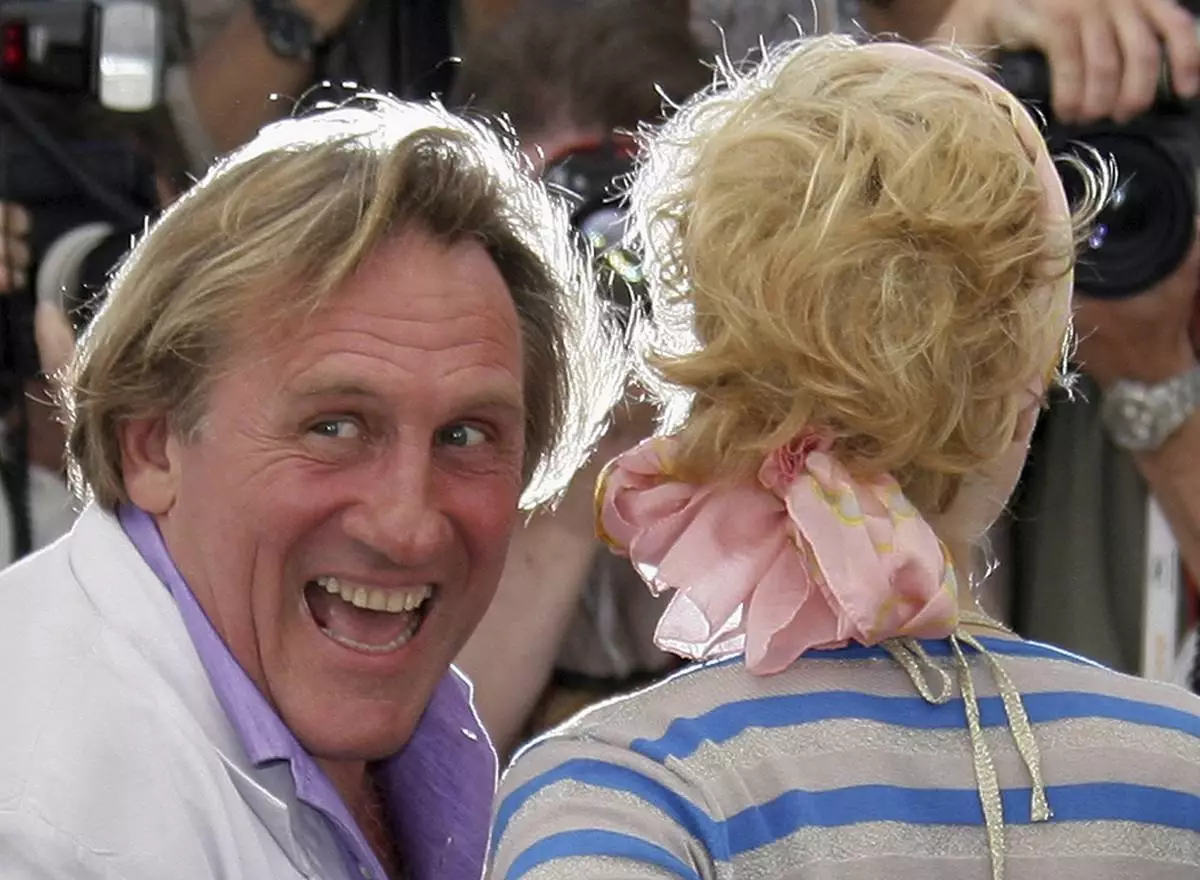
FILE - French actor Gerard Depardieu, left, and Belgian actress Cecile de France pose during a photo call for the film "Quand J'etais Chanteur," at the 59th International film festival in Cannes, southern France, on May 26, 2006. (AP Photo/Francois Mori, File)










